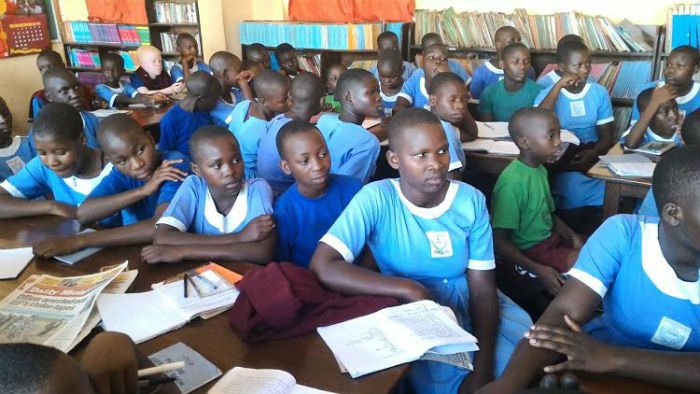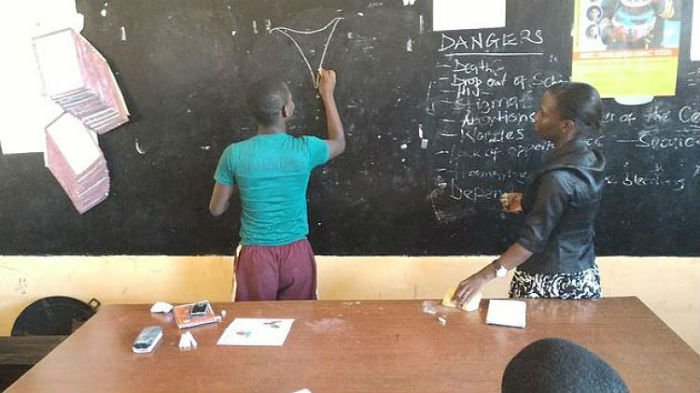
World Contraception Day was at the end of September, which many people were simply unaware of. This is particularly the case in communities like the Luzira slum area of Kampala, where there are high rates of early pregnancy, maternal mortality, unsafe abortions, and HIV/STI infection stemming from unprotected sex and lack of education and services related to sexual and reproductive health and rights (SRHR), especially for adolescent girls. But in a highly religious and conservative country like Uganda, when is the right time to start talking to girls about how to protect themselves, while acknowledging that abstinence is the most effective option?
Girl Up Initiative Uganda (GUIU) has programs for girls in primary school to supplement their basic education, and life skills are at the crux of the curriculum, with adolescent health and SRHR being a key component. One of GUIU’s goals is to dispel any myths and clear up previous misinformation, seeing the knowledge it imparts as a form of empowerment.
On September 23rd, GUIU held a girls health education training for 80 girls at Murchison Bay Primary School, and then a larger mass education session for 500 girls, focusing on girls health education, headed by a local medical nurse Ms. Namuyimbwa Hajara. The topics covered included the dangers of early sex and pregnancy, such as exposure to HPV and cervical cancer. Monica Nyiraguhabwa, GUIU’s Executive Director who strives towards empowering girls in Uganda, stressed that when dealing with girls ages 8-16 (the average age of the girls in the program being 12) great care has to be taken in what is said to avoid upsetting parents; and that therefore, taking an ‘abstinence only’ approach is perhaps the best age-appropriate option. With girls in secondary school, it is more acceptable to discuss the use of contraception in detail.
That said, with girls on the higher end of the age spectrum, SRHR education becomes a bit more complicated. While it is difficult to pin-point an age and say that is when any given girl will engage in or be exposed to sexual activity, if an education program is to go beyond abstinence contraception has to take center stage. To this end, World Contraception Day was set up to spread the word about safe sex and the use of contraception among adolescents and young adults, to ensure they have all the necessary information to protect themselves.

Perhaps as girls are approaching the upper echelons of adolescence, around 15 years old, this is a crucial time to start the conversation, at least in an educational setting. In addition to the need for proactive parents, in conservative countries where cultural and spiritual leaders, religious figureheads, and traditional elders are heavily influential, they must realize the importance of addressing sexual activity with adolescents, especially girls. The position that some leaders take in scarcely talking about sex, or reacting negatively to actions such as the distribution of contraceptives by various groups, perpetuates ignorance and promotes harmful patterns among youth who are hungry for honest and useful SRHR information; as was demonstrated two days later at a GUIU adolescent health day held for the entire school at the request of the headmaster and staff for over 500 girls between ages 10 - 16. The mass campaign garnered much engagement and participation from the girls, who had a lot of questions and were eager to participate in the conversation.
Locally run organizations like GUIU are taking the important step in starting this conversation so that girls can freely ask questions and receive the correct information about their changing bodies. When they enter secondary school as GUIU alumni, the organization will ensure that they are provided with resources around safe sex and contraception. If an adolescent girl finds herself in situation where she may engage in sexual activity, is it not better that she knows in advance how she can protect herself, and have access to the means to do so? When girls continue to drop out of school because of early pregnancy, it should become obvious that this issue must be tackled head on!